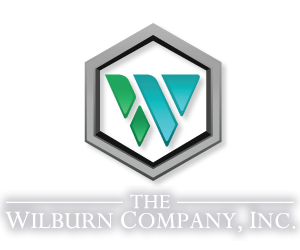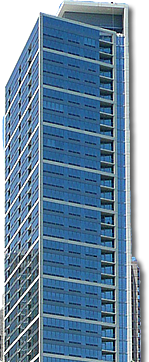
Not long ago, property management services were oriented around efficiency.
It’s an understandable approach; saving time and money on property management is a competitive advantage in the marketplace. Companies homed in on efficiency have gone to great lengths to reduce service times and product costs, ultimately transferring those benefits to building owners and occupants.
But it’s harmful in the end.
Because, while in many ways the pursuit of efficiency is a great thing, it isn’t everything. Treating efficiency as the end-all, be-all ends up hurting both our buildings and the people who occupy them. Pursing it to the exclusion of anything else eventually leads to harm.
That’s why today’s leading property management services are oriented around a new concept: building wellness. It’s a focus that prioritizes occupants, balancing efficiency with wellness. Efficiency is still valued, but not at the expense of wellness.
Simply put, it’s healthier.
And it’s transforming the nature of building property management services in a way that’s critically important. Let’s look at four critical questions around building wellness, to fully grasp what it means for the building management industry, for cleaning services, and for you.
1. What is Building Wellness?
So, first: what exactly does building wellness mean? The applications differ across the industry. But, at its core, building wellness means a focus on creating the healthiest possible indoor environment for people in buildings.
It means focusing on health even above efficiency.
2. Why Is Building Wellness Important?
To understand the true impact of building wellness, it’s helpful to review how alternative approaches are harmful.
Consider, for example, an HVAC provider not focused on building wellness, but on efficiency – the prevailing modus operandi for the previous several decades.
With an efficiency focus, the HVAC provider is incentivized to make systems run at the lowest costs possible. One way to save money: reduce the input of outside air into the system. Outside air tends to be a different temperature from the air in circulation in buildings. Pulling it in and adjusting it requires more energy than simply recirculating internal air, so many HVAC systems designed to prioritize efficiency incorporate minimal outside air.
The consequences of taking this approach are twofold. First, the building does save some money on energy costs. Second, the building environment is significantly less healthy.
The effects aren’t felt by building occupants at first. But, say the building in question is an office building. As employees report to work, day after day, year after year, they consistently breathe in contaminated air – and, over time, the reduced air quality translates to increased illness and a decline in occupant health. (May want to also include temperature variances)
Here’s the bottom line: a focus on efficiency over health can make people sick.
3. How Does Building Wellness Transform Cleaning Services?
At The Wilburn Company, we’re proud to be on the front lines of building wellness in cleaning services; we’re GS-42 certified by Green Seal, and focused fully on the principles of healthy cleaning.
In fact, we’re more than janitors. We’re environmental hygienists – responsible for the cleanliness of buildings and the health of their occupants.
That focus has transformed our cleaning services:
- We use green and sustainable products. Traditional cleaning involves harsh chemicals – effective on contaminants, but also harmful to humans. Sustainable products are effective and less harmful.
- Our cleaning procedures are health-focused. This is the difference between cleaning a bathroom for speed (spraying and wiping immediately), and cleaning for health (spraying, allowing products to sit on surface so that they can actually kill bacteria and be effective, and then wiping).
- Our staff are fully trained in building wellness. Understanding building wellness takes training in procedures and products. It also takes a willingness to adjust traditional frameworks. Keeping the bathroom closed for 15 minutes to allow products to sit isn’t popular. But the importance of occupant health is what’s most important.
- We focus on building wellness education. We’re advocates to our employees, our clients, and the public on the value of sustainable cleaning and the health risks of alternative approaches.
4. How Does Building Wellness Affect You?
Finally: how does building wellness affect your building, its occupants – and you?
Hopefully, the answer to that question is this: building wellness will make your building a healthier place. It will improve the health of your occupants and reduce the risk of illness. And, if you truly incorporate building wellness into your personal approach, building wellness will make you healthier, too. Because we all spend time indoors – and over time, our environments impact our health.
Are you ready to move from obsessive efficiency toward balanced health?
At The Wilburn Company, we take pride in providing cleaning services for commercial and government facilities that are designed with health in mind. Transform your approach and take the first step toward building wellness in your facility by getting in touch with us today.










